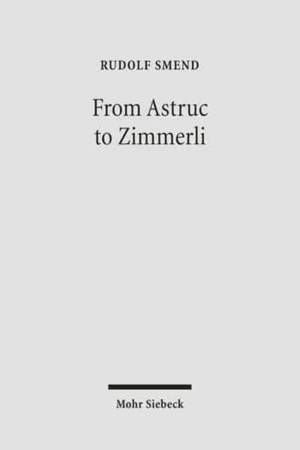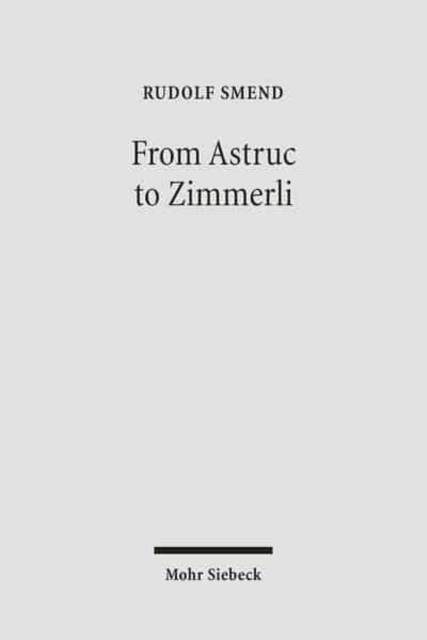
- Afhalen na 1 uur in een winkel met voorraad
- Gratis thuislevering in België vanaf € 30
- Ruim aanbod met 7 miljoen producten
- Afhalen na 1 uur in een winkel met voorraad
- Gratis thuislevering in België vanaf € 30
- Ruim aanbod met 7 miljoen producten
Zoeken
From Astruc to Zimmerli
Old Testament Scholarship in Three Centuries
Rudolf Smend
Paperback | Engels
€ 35,95
+ 71 punten
Omschrijving
In the humanities, if they are to remain alive, it is necessary to have a relationship to the thought as well as to the thinker from the past (Karl Rahner). Rudolf Smend attempts to establish such a relationship for one single branch of the humanities, which however can be seen as particularly paradigmatic. He does this in rough descriptions of 15 scholars who had a certain share in contributing to the history of Old Testament scholarship. He begins with the French physician Jean Astruc and the English Bishop Robert Lowth. Using the names for God, Astruc was the first to show that Genesis was based on various sources and manuscript traditions, and Lowth discovered the fundamental principle of Hebrew poetry (the parallelismus membrorum). At the end of the book the author discusses scholars whom he knew personally: Albrecht Alt, Gerhard v. Rad, Martin Noth, Isac Leo Seeligmann and Walther Zimmerli.
Specificaties
Betrokkenen
- Auteur(s):
- Uitgeverij:
Inhoud
- Aantal bladzijden:
- 265
- Taal:
- Engels
Eigenschappen
- Productcode (EAN):
- 9783161493386
- Verschijningsdatum:
- 31/12/2007
- Uitvoering:
- Paperback
- Formaat:
- Trade paperback (VS)
- Afmetingen:
- 153 mm x 229 mm
- Gewicht:
- 254 g

Alleen bij Standaard Boekhandel
+ 71 punten op je klantenkaart van Standaard Boekhandel
Beoordelingen
We publiceren alleen reviews die voldoen aan de voorwaarden voor reviews. Bekijk onze voorwaarden voor reviews.











